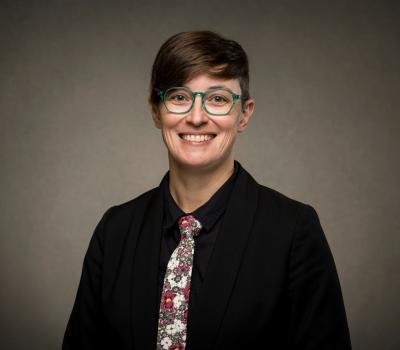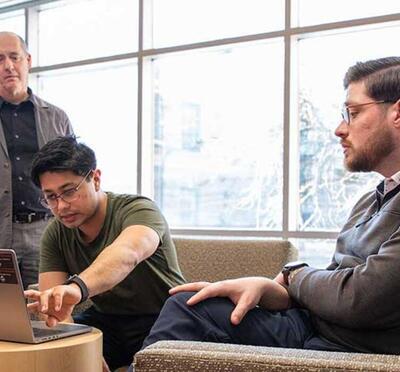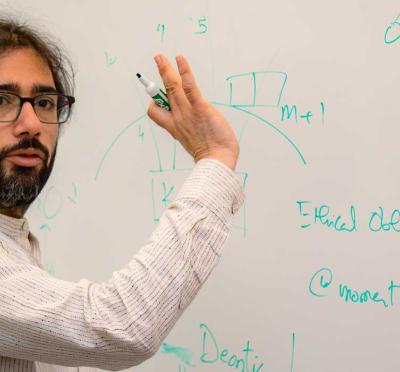When Glencora Borradaile was starting out as a young assistant professor at Oregon State University, they worked long hours — teaching classes, writing grants, and conducting research — all with the goal of making tenure.
“I was really stressed out by work,” said Borradaile, who uses gender-neutral pronouns. “I was also unhappy about the state of the world, and climate change was really bumming me out.”
The stress caused Borradaile to become depressed, which became an impediment to getting work done, which in turn caused even more stress. Borradaile knew they needed to break the cycle, so they decided to take action.
“If I could alleviate my depression about the state of the world by engaging in activism to try to make the world a better place, then maybe the work stress wouldn’t be as big a deal,” they reasoned.
Borradaile joined OSU Divest, a campus group calling on the OSU Foundation to withdraw its investments in the fossil fuel industry. Joining that effort did in fact help Borradaile’s state of mind. They found renewed energy and enthusiasm for work and got involved in additional environmental causes.
Borradaile was already well aware of the “chilling effect” — the tendency of citizens to restrict free speech activity for fear of retribution when they know they are being watched — that acts as a brake on social movements. But Edward Snowden’s 2013 revelations about the National Security Agency’s domestic surveillance shook Borradaile to the core.
“I realized that it’s not just the passive, chilling effect side of things, but the government uses its resources to suppress social movements,” they said. “As a computer scientist, I wasn’t sure how I could help with this.”
Borradaile attended a talk by Lauren Regan, executive director of the Civil Liberties Defense Center. The center, based in Eugene, provides legal assistance and advice for activists. Regan cautioned the audience to be careful about what they post online, to protect themselves as well as their social movements.
It was clear to Borradaile that digital security was an important topic to the CLDC, but the organization lacked in-house expertise. Borradaile jumped at the chance to get involved, giving workshops on digital security protections — including email encryption, cellphone security, and digital security culture.
“Engaging in something I really believe in is energizing. I feel excited that people are out there trying to make the world a better place, and I’m excited that I’m able to help them.”
Early on, Borradaile held workshops on encrypting email communications using Pretty Good Privacy. Although it has been the de facto standard for email encryption since its invention in 1991, PGP is notoriously difficult for non-programmers to use and manage. Two years after the workshop, follow-up surveys showed that many attendees were still using PGP.
Another workshop Borradaile recently held, on cellphone security, was aimed at the average person who might want to join, for example, a Black Lives Matter protest. Even when a person is engaging in lawful, First Amendment–protected activity, Borradaile warns, their cellphone could become lost or confiscated by law enforcement. Borradaile teaches people how to protect their private information from being accessed. These workshops are well attended, and Borradaile is in high demand.
“The first time I gave a talk that was standing room only was at the Public Interest in Environmental Law Conference,” they said. “People started requesting more help, and it snowballed to where I was giving training workshops once or twice a month.”
Digital security became such a hot topic within the CLDC that it’s now an integral part of the organization.
“Cora’s expertise has been of immeasurable benefit to environmental and social change movements around the country and the world,” said Regan. “With the rapid rate of technology and the surveillance state, we are so fortunate to have dedicated experts like Professor Borradaile to rely on for true and factual information to help keep BIPOC and other activist communities safer.”
Though Borradaile continues to have a lot on their plate, as the College of Engineering’s associate dean for graduate programs and associate professor of computer science, they make the time to continue volunteering as much as possible.
“Sometimes I feel like I have so much work to do, and family to take care of. But it’s important for me to do something other than work,” Borradaile said. “Engaging in something I really believe in is energizing. I feel excited that people are out there trying to make the world a better place, and I’m excited that I’m able to help them.”



